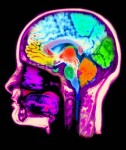By: Lauren Sepp, UW Graduate Student, Human Centered Design & Engineering
Many days I like to see what is happening in the world related to reflection, for example, how is that word operationalized in the news? How about with regards to the latest technologies? As I searched around recently, I found an interesting article linking dreaming to reflection.
A recent study was conducted about the links between what is referred to as ‘lucid dreaming’ and those who frequently practice self-reflection. Lucid dreaming is the idea that one can be dreaming and consciously realize that they are in the dream state – able to control movements and responses within the context of their dream. Lucid dreaming is opposed to rapid eye movement (REM) sleep which is commonly associated with dreaming where an individual has “complete lack of insight into the true state of mind.” The researchers recruited participants and monitored brain activity both through structural and functional MRI. Interestingly enough, those with increased lucid dreaming capabilities displayed a higher amount of grey matter in a certain part of the brain, among other differences.
While the study not only revealed clues about a participant’s differing brain structure, it also linked these findings to metacognitive abilities, postulating that in lucid dreaming states, individuals are able to regain their reflective abilities. [1]
The results of the study may seem heady (no pun intended) but I think that they reveal that reflection could help to physically shape our brain, building different mechanisms and pathways that may help us to think differently. In a press release, Elisa Filevich of the Center for Lifespan Psychology at the Institute for Human Development remarked that the, “…results indicate that self-reflection in everyday life is more pronounced in persons who can easily control their dreams.” [2]
Incorporating reflection into engineering education is not simply a move to help students to think more broadly about their education, but could these techniques help students to become more insightful about many other important parts of their lives? If self-reflection can promote lucid dreaming abilities and physically shapes a portion of the brain, what else can it do?
[1] E. Flievich, M. Dresler, T. R. Brick and S. Kuhn, “Metcognitive Mechanisms Underlying Lucid Dreaming,” The Journal of Neuroscience, vol. 35, no. 3, pp. 1082-1088, 2015.
[2] “Lucid dreams and metacognition: Awareness of thinking – awareness of dreaming.” Max-Planck. 20 Jan. 2015.
Link to actual Study: http://www.jneurosci.org/content/35/3/1082.long
Summary of the study: http://www.medicaldaily.com/lucid-dreaming-associated-more-pronounced-self-reflection-everyday-life-319326
Photo Credit: http://www.independent.co.uk/news/science/how-dream-of-reading-someones-mind-may-soon-become-a-reality-792069.html
